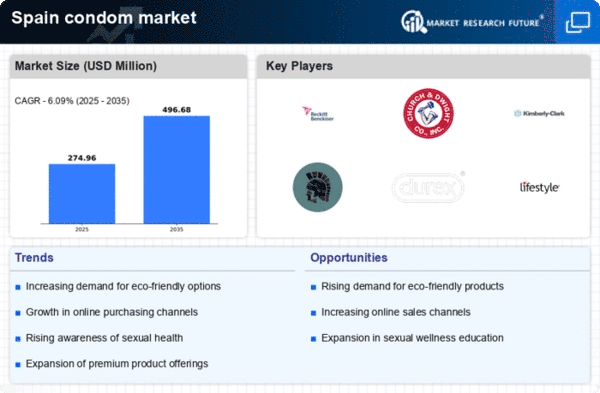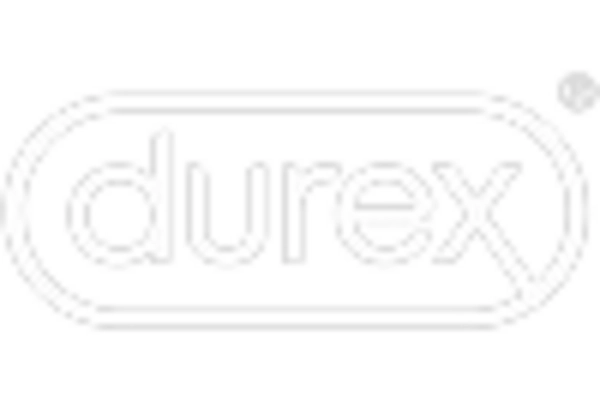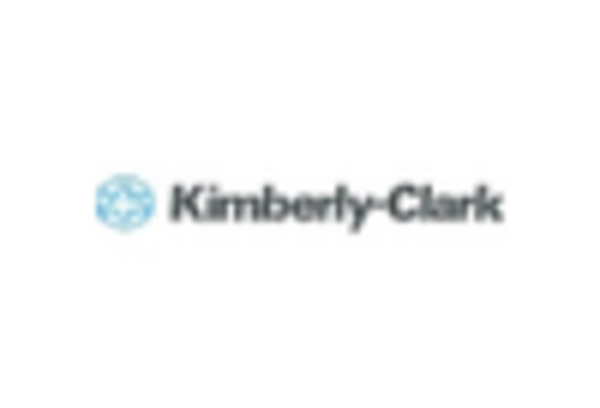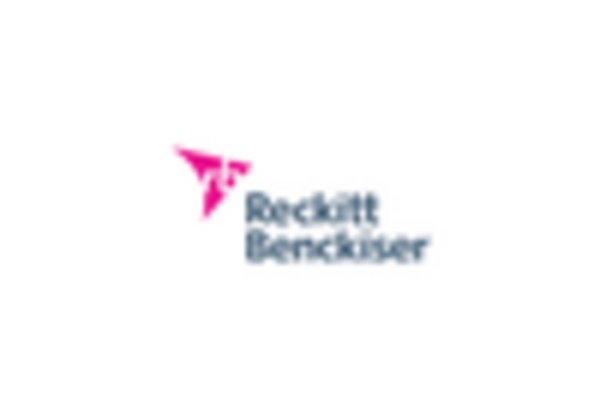Influence of Youth Culture
The youth demographic in Spain plays a crucial role in shaping the condom market. With a significant portion of the population being young adults, there is a notable shift towards more open discussions about sexual health and relationships. This cultural shift is reflected in the increasing acceptance of condom usage among younger individuals, who are more likely to prioritize safe sex. Market data suggests that approximately 60% of condom purchases in Spain are made by individuals aged 18 to 30. This demographic's preference for innovative and trendy products has led to the introduction of various condom types, including flavored and ultra-thin options, thereby diversifying the market. Consequently, the influence of youth culture is likely to propel the condom market forward, as brands adapt to meet the evolving preferences of this key consumer segment.
Rise of Online Retail Platforms
The expansion of e-commerce in Spain has transformed the way consumers purchase condoms, thereby influencing the condom market. Online retail platforms provide a discreet and convenient shopping experience, which is particularly appealing to individuals who may feel uncomfortable purchasing condoms in physical stores. Recent statistics show that online sales of condoms have surged by approximately 10% over the past year, indicating a shift in consumer purchasing behavior. This trend is further supported by the increasing availability of subscription services that deliver condoms directly to consumers' homes. As e-commerce continues to grow, it is likely that the condom market will experience further expansion, driven by the accessibility and convenience offered by online shopping.
Increasing Demand for Safe Sex Products
The growing emphasis on safe sex practices in Spain appears to be a primary driver for the condom market. With rising awareness regarding sexually transmitted infections (STIs) and unintended pregnancies, consumers are increasingly opting for condoms as a reliable method of protection. Recent data indicates that the market for condoms in Spain has seen a growth rate of approximately 5% annually, reflecting a shift in consumer behavior towards prioritizing sexual health. This trend is further supported by educational campaigns and initiatives aimed at promoting safe sex, which have contributed to a more informed public. As a result, the condom market is likely to continue expanding, driven by the demand for products that ensure safety and health during sexual activities.
Regulatory Support for Sexual Health Initiatives
Government policies and regulations in Spain that promote sexual health education and access to contraceptives are pivotal for the condom market. Initiatives aimed at reducing STIs and promoting responsible sexual behavior have led to increased availability and affordability of condoms. For instance, public health campaigns funded by the government have made condoms more accessible in schools and community centers, thereby encouraging their use. This regulatory support is reflected in the market, where condom sales have increased by approximately 7% in recent years. Such measures not only enhance public health but also stimulate growth in the condom market, as consumers are more likely to purchase products that are readily available and endorsed by health authorities.
Technological Advancements in Product Development
Innovations in condom manufacturing technology are significantly impacting the condom market in Spain. Advances in materials and design have led to the creation of condoms that are thinner, stronger, and more pleasurable, appealing to a broader audience. For example, the introduction of polyisoprene and other synthetic materials has enhanced the comfort and sensitivity of condoms, making them more attractive to consumers. Market analysis indicates that these innovations have contributed to a rise in sales, with a projected increase of 4% in the premium segment of the market. As manufacturers continue to invest in research and development, the condom market is likely to benefit from ongoing improvements that cater to consumer preferences for quality and performance.
















